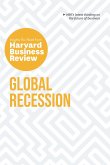Economists talk of prices rising or falling in response to excess of demand or supply in the market, but are at a loss to explain who sets the price in a market of many players where no one has the power to dictate price. They then have to invent the invisible hand of a mythical god called price mechanism to create the image of the market operating as a self-regulating system. While unregulated free trade amounts to groping in the dark, the situation is far worse when the prices and other rules of the market are set by the state on behalf of large corporationsas has happened in globalizing India in the name of economic development. Large corporations, aided and abetted by the land acquisition policies of the central and state governments, are indulging in massive land-grabbing. We witness the perversity of development in the destruction of livelihoods and displacement of the poor in the name of industrialization, in the construction of big dams for power generation and irrigation, in the corporatization of agriculture despite farmers suicides, and in the modernization and beautification of our cities by the demolition of slums. One of Indias foremost theoretical economists, Amit Bhaduri contends that we have abjectly surrendered to the conventional wisdom of our timethat there is no alternative to corporations and the type of globalization that they lead. The result, he warns, will not be a freer market and more freedom, but a disastrous and deepening chasm between the India of privilege and the India of crushing poverty. The Face You Were Afraid to See is a collection of compellingly argued essays that draws attention to the other India that we turn away from. Fiercely critical of financial liberalization, corporate-led globalization and neoliberalism that celebrates unregulated free trade, the essays together make for a forceful critique of Indias economic policies.
Hinweis: Dieser Artikel kann nur an eine deutsche Lieferadresse ausgeliefert werden.
Hinweis: Dieser Artikel kann nur an eine deutsche Lieferadresse ausgeliefert werden.








